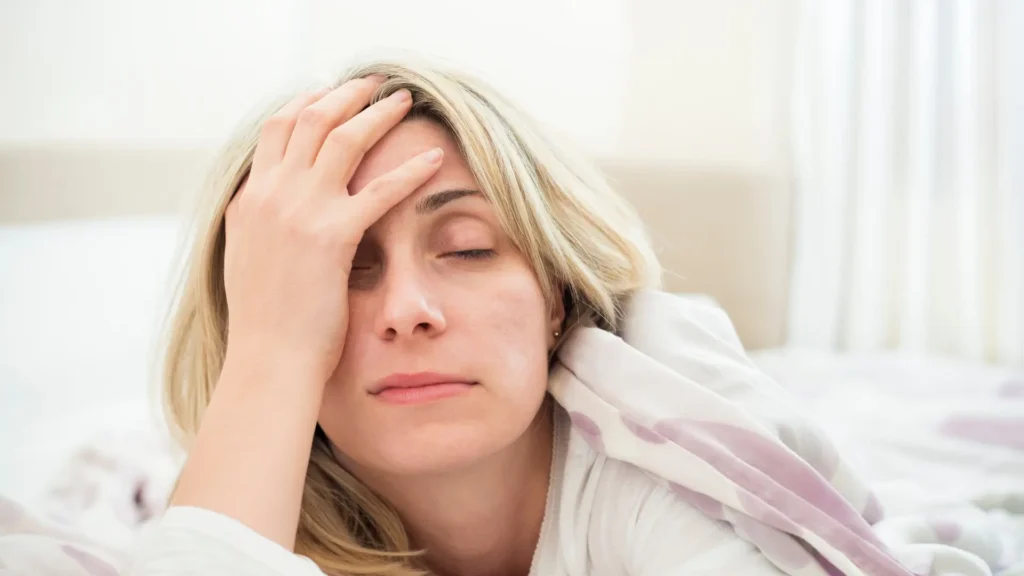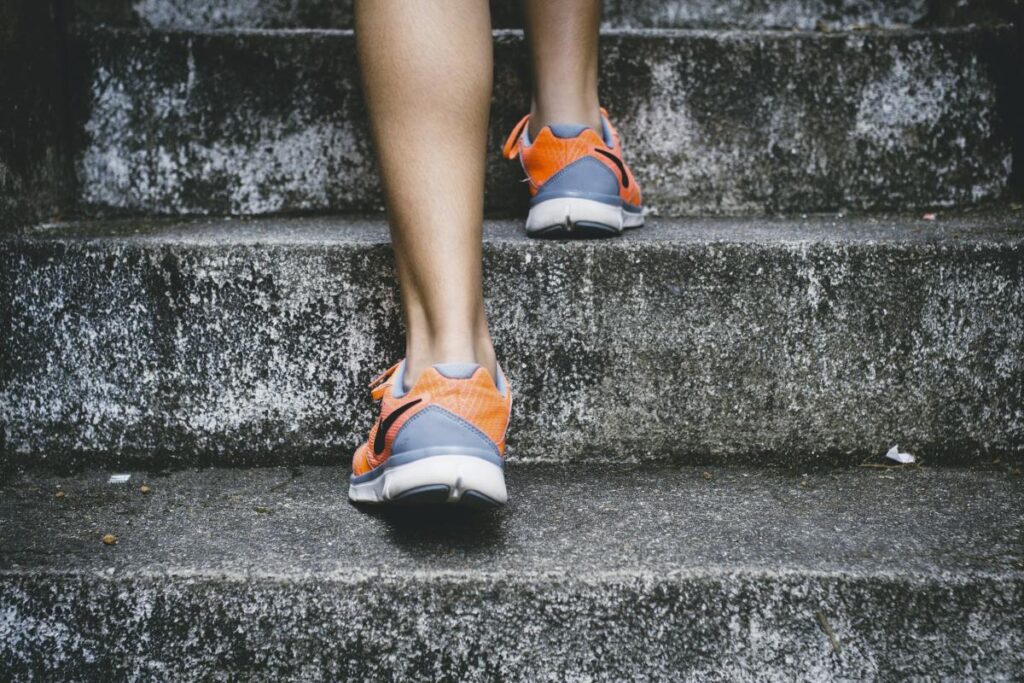Getting enough sleep is essential for maintaining good health. And did you know that what you eat and how much you exercise can directly impact your sleep quality? It’s true.
When you combine a balanced diet with regular exercise, the impact on sleep quality can be profound. This improvement in sleep leads to:
- Greater energy levels
- Better mood regulation
- Overall enhanced well-being
In this article, we will be taking a look at the impact of diet and exercise on sleep quality.
1. The Influence of Exercise on Sleep Quality

Physical activity and sleep quality have a strong connection. Regular exercise can improve your sleep in several ways:
- Enhancing all sleep stages: Exercise can help you get more of both the lighter and deeper stages of sleep, which are essential for restoration.
- Relieving Insomnia: Insomnia is a common sleep disorder characterized by difficulty falling or staying asleep. Studies show that consistent exercise can significantly reduce symptoms in people with insomnia.
How Exercise Helps with Insomnia
Several studies have shown that individuals with insomnia who engage in regular exercise experience:
- Faster time to fall asleep
- Longer total sleep time
- Fewer awakenings during the night
Best Types of Exercise for Sleep Quality
When choosing physical activities to improve your sleep, consider the following:
- Aerobic exercises: Activities like running, cycling, or swimming that get your heart rate up are great choices. They promote better sleep by making you physically tired and allowing for better recovery during rest.
- Yoga: With its gentle movements and focus on deep breathing, yoga can help reduce stress and promote relaxation, leading to improved sleep quality.
The Timing Factor: When to Exercise for Better Sleep
The timing of exercise can also play a role in its effects on sleep:
- Some people may find an evening workout energizing and have no trouble falling asleep afterward.
- Others may experience difficulty sleeping if they exercise too close to bedtime.
Health experts generally recommend engaging in moderate-intensity exercise during the morning or early afternoon to optimize its benefits for a good night’s rest.
The Benefits of Regular Physical Activity for Sleep
By making regular physical activity a part of your lifestyle, you can:
- Improve overall sleep quality
- Reduce the frequency and severity of sleep disturbances
- Enhance daytime alertness and performance
This natural approach can be a valuable addition to other sleep hygiene practices in managing sleep problems without relying on medications.
2. The Role of Diet in Promoting Healthy Sleep

When it comes to how our diet affects our sleep, what we eat plays a major role. Our food choices have a direct impact on our sleep health, as certain foods and nutrients can either help us sleep better or make it harder for us to get the rest we need.
How Certain Foods and Nutrients Affect Sleep
Here are some examples of how specific foods and nutrients can affect our sleep:
- Magnesium: Found in nuts and leafy greens, magnesium has been linked to better sleep quality. It has a relaxing effect on the body and can help calm the mind before bedtime.
- Calcium: Dairy products and fortified plant milks are good sources of calcium, which plays a role in the production of melatonin – a hormone that helps regulate sleep-wake cycles.
The Importance of a Balanced Diet for Better Sleep
Eating a balanced diet that includes a variety of nutrient-rich foods is key to promoting good sleep. Here’s why:
- Fruits and vegetables: These are packed with vitamins, minerals, and antioxidants that support overall health, including sleep.
- Whole grains: They provide complex carbohydrates that release energy slowly throughout the night, helping to maintain stable blood sugar levels and prevent sudden awakenings.
- Lean proteins: Foods like chicken, fish, tofu, and beans are high in amino acids, which are the building blocks of neurotransmitters involved in sleep regulation.
How Dietary Patterns Can Impact Sleep
It’s not just individual foods or nutrients that matter – our overall dietary patterns can also affect our sleep. Here are two examples:
- Carbohydrates and Sleep: While high-carb meals may make us feel sleepy initially due to an increase in serotonin (a brain chemical that promotes relaxation), they can also lead to a drop in blood sugar levels later on, causing us to wake up during the night.
- Heavy Meals Before Bed: Eating large or rich meals close to bedtime can cause discomfort and indigestion, making it difficult to fall asleep and stay asleep throughout the night.
The Connection Between Nutrition and Sleep
By paying attention to our nutrition, we have a natural way of improving our sleep quality without relying solely on external solutions like sleeping pills. Getting specific nutrients through a well-rounded diet can be a proactive approach to enhancing both sleep and overall health.
3. Understanding How Sleep Disorders Can Be Influenced by Diet and Exercise

Sleep disorders, such as obstructive sleep apnea (OSA) and sleep-disordered breathing, are closely connected to the way we live, especially our diet and exercise habits. However, the relationship between sleep disorders and lifestyle choices is not the same for everyone:
How Weight Gain Can Increase the Risk of Obstructive Sleep Apnea (OSA)
One common sleep disorder is obstructive sleep apnea (OSA), where excess weight can raise the chances of developing this condition. This is because the extra tissue may block the airway during sleep. On the other hand, engaging in physical activities can help manage weight and potentially reduce the severity of OSA by improving how well we breathe.
How Food Choices Can Impact Sleep-Disordered Breathing
Another type of sleep disorder is sleep-disordered breathing, which can also be influenced by weight-related issues. However, in addition to weight, the kind of food we eat might play a role as well:
- High-fat diets could potentially lead to inflammation, causing the airway to narrow and making it harder to breathe during sleep.
- On the other hand, a balanced diet with anti-inflammatory properties might help alleviate symptoms associated with sleep-disordered breathing.
The Connection Between Physical Activity and Sleep Quality
Regular physical activity has been found to have positive effects on our sleep quality:
- It promotes deeper sleep stages.
- It can reduce the likelihood of experiencing disruptions during sleep.
How Poor Sleep Quality Can Affect Our Lifestyle Choices
Conversely, when we don’t get enough good-quality sleep, it can have negative consequences on our motivation for physical activity and eating habits:
- We may feel less motivated to engage in exercise due to fatigue.
- We might turn to unhealthy foods as a way to compensate for our lack of energy.
The Importance of a Healthy Diet and Exercise Routine for Sleep
Overall, maintaining a healthy diet and regular exercise routine is not only beneficial for our physical well-being but also plays a crucial role in supporting good sleep hygiene and managing existing sleep disorders. It’s important to note that everyone’s situation is unique, so it’s best to seek personalized advice based on individual needs.
Optimizing Sleep Quality Through Diet, Exercise, and Lifestyle Choices

To achieve the best sleep quality, it’s essential to go beyond diet and exercise to include other healthy practices. These combined efforts can lead to an increase in sleep duration and a boost in overall well-being. Here are some strategies to consider:
- Create a Sleep-Inviting Environment: Make sure your bedroom is quiet, dark, and at a comfortable temperature. A good mattress and pillows contribute to better sleep as well.
- Establish a Relaxing Bedtime Routine: Engage in calming activities before bed, like reading, taking a warm bath, or practicing meditation to signal your body that it’s time for rest.
- Limit Exposure to Screens: The blue light from phones, tablets, and computers can disrupt your natural sleep cycle. Try turning off these devices at least an hour before bedtime.
- Maintain Consistency: Going to bed and waking up at the same time each day reinforces your body’s sleep-wake cycle.
- Mind Your Intake: Avoid heavy meals, caffeine, and alcohol close to bedtime as they can interfere with falling asleep or cause disruptions during the night.
By integrating these habits with nutritious eating and regular physical activity, you’re setting the stage for improved sleep. This well-rounded approach addresses various factors that can impact slumber quality.
Following this comprehensive path not only enhances nighttime rest but also supports daytime energy levels and overall health.
The Importance of Prioritizing Sleep for Successful Dieting and Exercise

In the world of health and wellness, sleep often takes a backseat. Yet, it plays a critical role in weight management and physical performance. Poor sleep has significant health consequences that we cannot ignore.
Sleep and Weight Management
When we don’t get enough sleep, our body’s ability to manage weight effectively is compromised. This is because sleep deprivation can disrupt the balance of hunger and fullness hormones – ghrelin and leptin. As a result, we may feel hungrier and have a harder time feeling satisfied after meals, leading to overeating even when we’re physically active.
Sleep Disorders and Obesity
Sleep disorders related to obesity, such as sleep apnea, create a harmful cycle that further worsens sleep quality. It’s important to note that prioritizing good sleep can support our efforts to lose weight by helping to maintain hormonal balance and prevent overeating.
The Impact of Sleep on Exercise Performance
Quality sleep doesn’t just affect our eating habits; it also has a direct impact on how well we perform during exercise. Research has shown that individuals who don’t get enough rest tend to have lower physical endurance and slower recovery rates after working out. In other words, without sufficient sleep, it may be harder for us to fully benefit from our exercise routine.
The Holistic Approach: Diet, Exercise, and Sleep
While diet and exercise are essential parts of a healthy lifestyle, we must also recognize the importance of sleep as an equally crucial pillar. Understanding the interconnected nature of these three elements can help us develop more effective strategies for managing our health.
Conclusion
Based on the evidence, your sleep quality can be greatly affected by the dietary choices and exercise habits you make. The connection between diet, exercise, and sleep quality is significant and can have an impact on your overall well-being.



